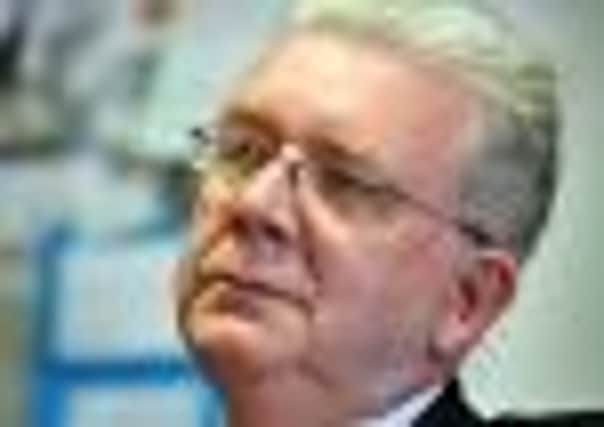Teachers set for wave of strike action


Members of the Educational Institute of Scotland (EIS), the country’s largest teaching union, yesterday agreed to oppose any attempt to impose some of the key recommendations from the McCormac report on employment practices, threatening to use industrial action if required.
Teachers across Scotland are already taking part in a strike on 30 November over changes to their pensions, which is the first national stoppage since 1986.
Advertisement
Hide AdAdvertisement
Hide AdHowever, yesterday’s decision raises the prospect of yet further strikes on the separate issue of the McCormac report if councils try to impose the recommendations. Published in September after an eight-month investigation into teacher employment, the report by Prof Gerry McCormac, principal of Stirling University, is regarded by teachers as an attack on their profession.
During yesterday’s special general meeting in Edinburgh, one delegate referred to the McCormac report as being “anti-teacher”, while the union’s general secretary, Ronnie Smith, said the review of teachers’ pay and conditions had not been necessary.
Serving notice on the Scottish government that industrial action was likely, Smith said: “It’s very, clear that very few of the recommendations (in the report) are getting a following wind. There was virtually no division on that among the 300 people here today.
“We’ve got a very clear mandate from this conference to take a hard negotiating position. If there was an attempt by local authorities, the Scottish Government, or both to impose something – that would be very, very unwise in the current climate.
“We didn’t particularly ask for this report and I’m just not sure how necessary it was. It has not done that good a job in putting across the case for some of its recommendations – I don’t think it’s the greatest piece of work.”
Another union, the NASUWT, has already called for the McCormac report to be thrown out, accusing it of being “ignorant” of the job done by teachers.
The EIS, which represents around 55,000 teachers, yesterday stopped short of doing the same, but agreed a motion calling for industrial action if a series of conditions are not retained.
McCormac concluded the current system in Scottish schools is “overly prescriptive and inherently inflexible”.
Advertisement
Hide AdAdvertisement
Hide AdAs well as suggesting an end to the focus on reducing class sizes, he also suggested the controversial introduction of “external experts” to aid teachers, as well as scrapping the system of chartered teachers.
It was also recommended that no changes be made to the 35-hour week, but that “flexibility” should be allowed to allow teachers to undertake “effective collegiate work”. The report also said teachers should stay on school premises during the school day.
Although no changes should be made to salaries in the short term, they should remain at a level that “ensures teaching is an attractive career choice”.
There should also be no change made to the 855 hours per year of class contact time, but said such time should be measured over longer periods such as a month or a term rather than over a week.
In its motion yesterday, the EIS sets out six separate objectives, including the retention of the 35-hour week and a weekly class contact maximum of 22.5 hours.
It also calls for a list of teachers’ duties set out in the Scottish Negotiating Committee for Teachers (SNCT) to be retained.
However, delegates also agreed around 20 further motions, including those calling for the protection of class sizes and another threatening additional industrial action if there was any imposition of additional duties for Chartered Teachers.
One Edinburgh teacher made an impassioned plea to her colleagues not to allow any let-up in moves to reduce class sizes.
Advertisement
Hide AdAdvertisement
Hide AdShe said: “We’ve got to say very, very clearly that we reject that absolutely. We’ve not campaigned for years and years on class sizes just to see that binned.
“Reducing class sizes is fundamental to improving children’s education in Scotland. We should not let McCormac have the last word on class sizes.”
Eileen Prior, the executive director of the Scottish Parent Teacher Council (SPTC), said the EIS had been too quick to raise the threat of a strike.
She said: “The education secretary (Michael Russell) has made clear that the McCormac report is up for discussion and parents would say the EIS is being a bit previous in moving to this particular conclusion.
“Many parents will be very distressed that the union is moving to this position at such an early stage.”